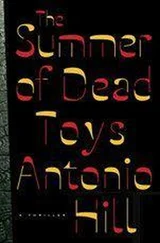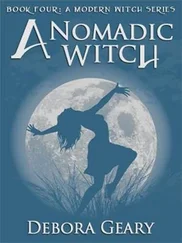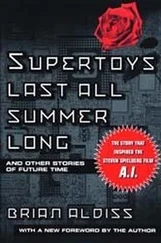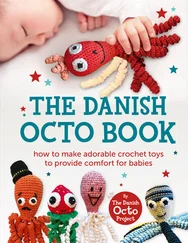She sure could run. The bags of money pounded painfully against my chest. “Stan!” she shouted.
I kept running, running, the heavy bags beating with each stride.
“Pet!” she yelled. “He’s drunk!”
Abruptly, my feet stopped. When I looked up, the car was only ten feet away.
June stood to one side, under the streetlamp. Her arms were akimbo, and her face was set in a perfect mask of indignation and disapproval. And rage. You didn’t want that face mad at you.
He was drunk, all right. A loud, contented snoring issued from his slumped shape, arms hugging the steering wheel, face pressed into the spokes. The bourbon fumes were impressive.
I shook his shoulder. “Stan?”
“Wazzat?” He jerked upright a moment and then collapsed again.
“Now what?”
June shrugged. “Let’s go back to the motel.”
“And leave him like this?”
“Why not? He left us.” She was strictly Old Testament.
I looked around. A phone booth gleamed about half a block away. “We should call the motel.”
June shrugged again but handed me the matchbook with the telephone number.
The desk rang Stan and Linwood’s room. The phone was picked up on the ninth ring.
“Yes?” Linwood’s voice was sobbing.
“This is Pet. We’re—”
“Honey, are you okay?” She could barely get the words out.
“I’m fine, but—”
“Is June all right?”
“She’s fine, but—”
“Oh, honey, isn’t it terrible!” Her voice choked on hiccups and tears.
“Stan’s not that drunk,” I lied.
“Our beautiful house,” Linwood moaned. “My paintings! Nana’s wedding veil. Your baby books.”
A terrible cold chill racked my body. “What do you mean?”
“Didn’t Stan tell you?”
I couldn’t breathe.
“Oh, honey!” Linwood was choking again. “Our house! They burned our house down!”
All I could see was Roberta, her beautiful body melting in the flames.
“Everything’s gone,” she said.
“But who…”
“Those boys did it! Those terrible boys who ruined Deane!”
Tommy.
“Her trial…” Linwood trailed off. “It was sort of a warning.”
June wasn’t going to take this very well. I wasn’t taking this very well. “Look,” I said, suddenly as clear as a piece of Saran Wrap. “We’re stuck up here and Stan’s too drunk to drive.”
“Very well,” said Linwood. “You girls stay right there. I’m calling the police.”
Outside of Mobile, on the old road along the Gulf, you really begin to feel you’re on your way to New Orleans. All those enormous houses, white columns, and golf course lawns. And the peaceful, disinterested water to your left. No waves, no noise, only flat glimmer.
A grim Linwood was at the wheel. Stan, whose license had been suspended, was snoozing away in the passenger seat.
Christmas was the day after tomorrow, but nobody had bought any presents yet. The idea was that we’d all go shopping tomorrow in the Quarter, but I wondered. It was as if we were complete strangers, bound together on this journey by an odd twist of fate.
“Look,” said June.
A couple of boys in black rubber wet suits were trying to ride what passed for waves, little ripples. Bread would get a good laugh over that. He had pictures of those real surfers in Hawaii, their boards sliding diagonally down what looked like mountains of water. That’s the way the world would end: wiped out from ocean to bay by the great looming giant of a wave.
Only 156 miles to New Orleans. We’d only been there in the summer, it was such a warm-weather city. Even now when I could see the cold wind blowing the trees, I assumed it would be hot in New Orleans. Balmy air, lazy sound of insects. The mosquito trucks would glide up and down the streets at night, spraying their smoky odors.
The French Quarter was the best. The painters at their easels around Jackson Square (though Linwood sneered at what they did, calling it “craft” rather than art) wearing berets and blue jeans with splotches of color. In the center of the square were sheaves of flowers, pink and yellow and red. Farther down was the coffee place and the thick warm doughnuts covered with powdered sugar, like the talcum powder you pour over yourself after a bath. (Maybe I used too much? When I got talcum for my birthday, it never seemed to last very long. I wanted to make my skin white so I’d look Japanese.)
The doughnuts were great, but so was the just-sitting-there, watching how bright and lively everyone was. Linwood would smile and turn her sunglasses toward the light. She liked to explain how black people were the prettiest, the gleam of their skin, the firm line of their bones. When she’d started sculpting a few months ago (everything destroyed now), it looked like that’s who she wanted to shape. Always her ideas were so much larger and grander than real people. The men were warriors, the women were curvaceous and fruity, like Betty and Veronica in the Archie comic books. There was no way I’d ever look like that. Even Deane, who seemed to have a lot going on in the breast department, routinely stuffed Kleenex in her bra.
Linwood had showed me once how men could be drawn as a series of triangles and women as a series of circles. Even then, I knew my body would be straight lines all the way.
“I sure wish we were going somewhere else.” June’s sigh was profound.
“Me too.”
“Pet?” Linwood was surprised. “I thought you liked New Orleans.”
Jackson Square, the smell of coffee and doughnuts, and the women sashayed by, orange bandannas over copper skin, turquoise skirts, red and yellow blouses. “I do, but I have this, uh, bad feeling.”
“What kind of bad feeling?”
All I could see when I thought of New Orleans was this big red schmear all over everything. But who knew?
“Fatso has dreams,” said June. “Even when she’s awake!”
Where did that come from?
“Let’s all have an awake-dream,” said Linwood. “I’ll start. I see us… oh, sailing off on a boat….”
Stan was wearing a jaunty nautical cap, Linwood sprawled on deck in a flowered bikini. June was fishing. They were all neatly tanned, waving, waving to whoever had come to see them off. The sun hot and calm, they were about to sail away… forever. The bright white of the sky was like a Band-Aid over everything that had happened before.
But where was I?
“No,” said June. “No boat! How about just a regular house…”
They were all in the backyard barbecuing hamburgers on one of those big round grills. Stan was wearing a jaunty chef’s hat and a silly apron. Linwood reclined in a chaise-longue, a frosted drink poised in her beautifully manicured hands. June was on the lawn, playing in a sprinkler, and she was much younger, maybe four or five.
No me again.
“A ‘regular’ house?” Hurt in every syllable. “What was wrong with the house you grew up in, now that it’s gone?”
“The Buddha, for one thing.”
“My glorious Buddha!” Linwood was trying not to cry. “That’s a very Zen way of going, though, fire.”
“Regular people don’t have Buddhas and they don’t talk about ‘Zen’ and they don’t have witches for sisters.”
“Don’t exaggerate,” said Linwood. “Deane may have her problems, but there’s nothing wrong with Pet.”
“That’s what you think,” June muttered.
I silently agreed.
“And we may as well all enjoy each other now,” Linwood continued, as if to convince herself. “We’re all we have. The insurance paid off generously. We have no ties. We’re free as birds—it’s a wonderful feeling, really….” She began to sob quietly.
Читать дальше












